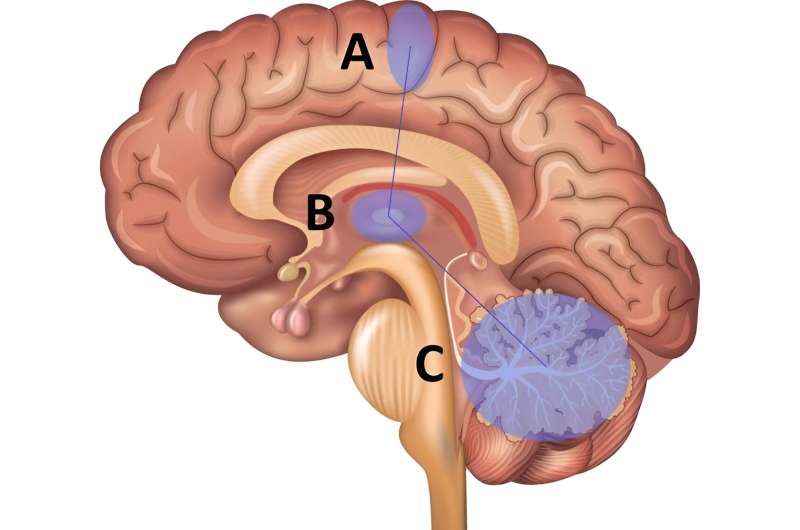
New research by the National Neuroscience Institute (NNI) of Singapore has identified for the first time how gene variations cause changes in the brain that are linked to essential tremor—a common condition that causes uncontrollable shaking of the hands, such as when writing or holding items.
Essential tremor is one of the most common movement disorders, affecting more than 60 million people worldwide. More than half of the total diagnosed cases have a family history of tremor, and those with a parent or sibling with essential tremor are nearly five times more likely to have the condition.
“Hand tremor affects both the young and the old. It is not only socially embarrassing but impacts one’s quality of life. Some patients also develop voice and head tremor. While some medical conditions can cause tremors, the exact cause of essential tremors is unknown,” said the study’s Principal Investigator, Professor Tan Eng King, Deputy Chief Executive Officer (Academic Affairs) and Senior Consultant, Department of Neurology, NNI.
The NNI study, which was published in the journal Movement Disorders, used brain MRI scans and genetic data of more than 33 000 adults to identify genetic variations associated with essential tremor and their links with structural changes in the brain.
The team identified genes related to differences in specific parts of the brain involved in tremor. For example, there is a specific set of genes that are related to a thinner cortex (outer region of the brain) and a smaller cerebellum (hind brain), the part of the brain involved in balance and movement.
The study also identified how these genetic variations affect the brain at the cellular pathway level, revealing new potential drug targets to treat the condition.
“Normally, the body is able to dispose of faulty proteins, but we found that this ‘quality control’ system is faulty in tremor-related parts of the brain. This may affect cell function and disrupt the flow of messages along a key neural pathway between the cerebellum, thalamus and motor cortex, and result in uncontrollable shaking of the hands,” said Dr. Thomas Welton, Principal Investigator at NNI and first author of the paper.
The study used brain scans and genetic information from the UK Biobank as part of preliminary studies, and work is underway to gather brain scans and genetic data from Singaporeans who have been diagnosed with essential tremor. This additional study will help researchers compare whether ethnic-specific differences exist, and their impact on the brain, which is important for the development of new treatments to improve tremor management.
More information:
Thomas Welton et al, Association of Gene Expression and Tremor Network Structure, Movement Disorders (2024). DOI: 10.1002/mds.29831
Citation:
Trouble with trembling hands originates in the brain: Research IDs genetic variations associated with essential tremor (2024, August 29)
retrieved 13 September 2024
from https://medicalxpress.com/news/2024-08-brain-ids-genetic-variations-essential.html
This document is subject to copyright. Apart from any fair dealing for the purpose of private study or research, no
part may be reproduced without the written permission. The content is provided for information purposes only.

